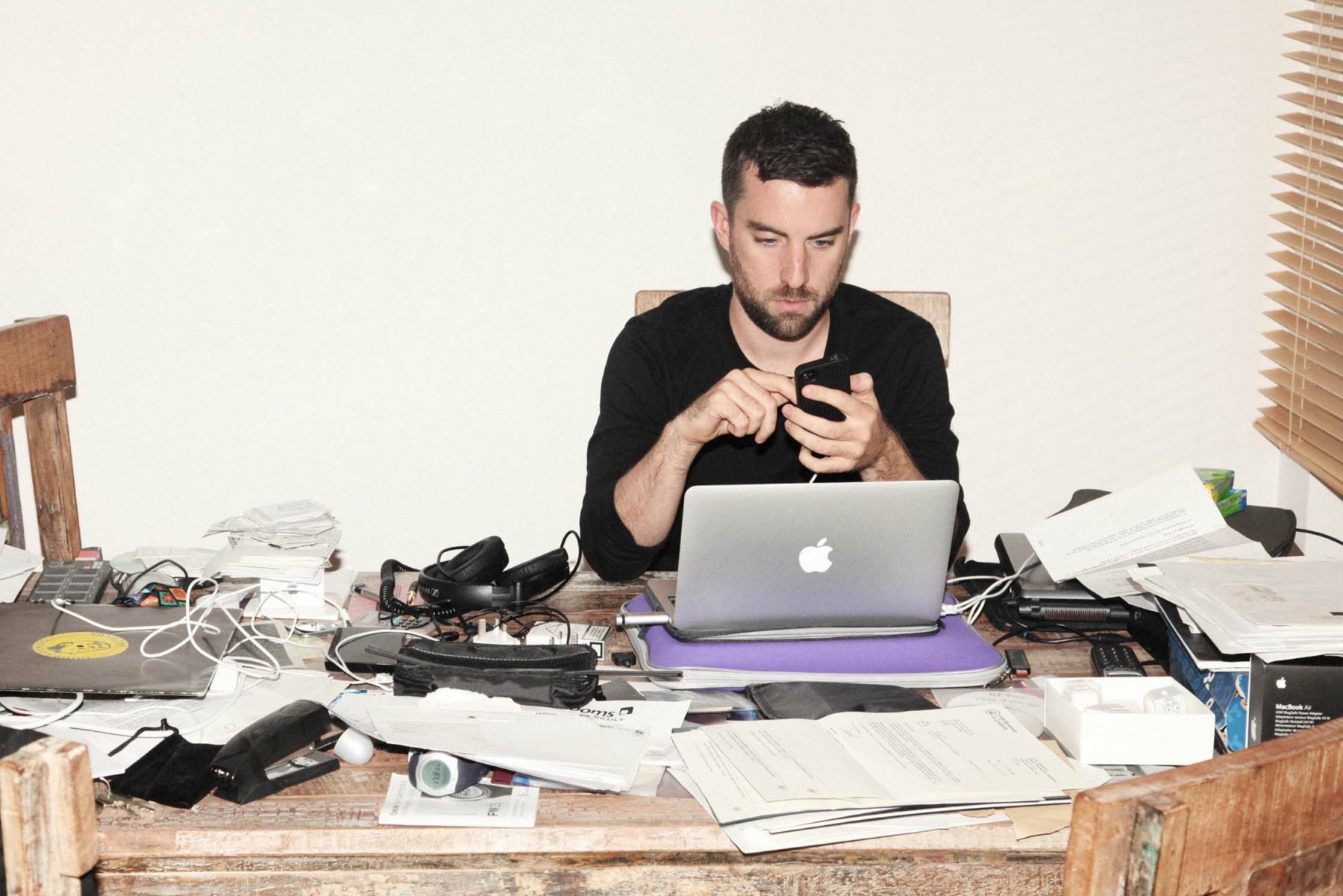As one of the most in-demand producers and DJs, meeting Paul Rose aka Scuba aka SCB at his home is not the easiest of tasks due to his heavy DJ schedule. Paul’s roots are in London, but he decided to relocate to Berlin in 2007. Since making this move he became best known for bringing the dubstep sound to Berlin’s famed club Berghain, and as the founder of Hotflush Recordings; one of the leading names in electronic dance and bass music. Growing up in London Paul became part of a core group of influential artists within the dubstep movement. He played regularly at a then pirate radio station known as Rinse FM. It was also around this time that he set up his label Hotflush Recordings which today has become known for representing artists such as Paul Woolford, George Fitzgerald, Jimmy Edgar, Shakleton, and Joy Orbison. Paul himself has produced countless 12” EPs and three full length albums: A Mutual Antipathy, Triangulation and Personality.
A few years ago Paul purchased a run down apartment in the now vibrant and very hip area of Neukölln. Applying his creative talents, he transformed it into the charming home it is today. His flat is a classic Berlin altbau building in a quiet street of an otherwise energetic and bustling part of Berlin. Upon entering you leave the city behind and find yourself in a long hallway bearing raw unfinished walls that lead into a large living room dominated by a warm set of brown chesterfields. Once seated comfortably on the classic British sofas focus is sent upwards to the original ornamental stucco detailing. Hanging on the walls are a mix of mirrors, carpets and artwork previously used at huge events, including original drawings for his infamous SUB:STANCE parties. Naturally it does not take long to spot clues that give away his profession: record bags, mountains of CD’s, and now instead of vinyl, a couple of silver usb sticks.
This portrait is part of a collaboration with Sennheiser’s Blue Stage Magazine, that explores people, who create unique sound and music, in their living and working environments.
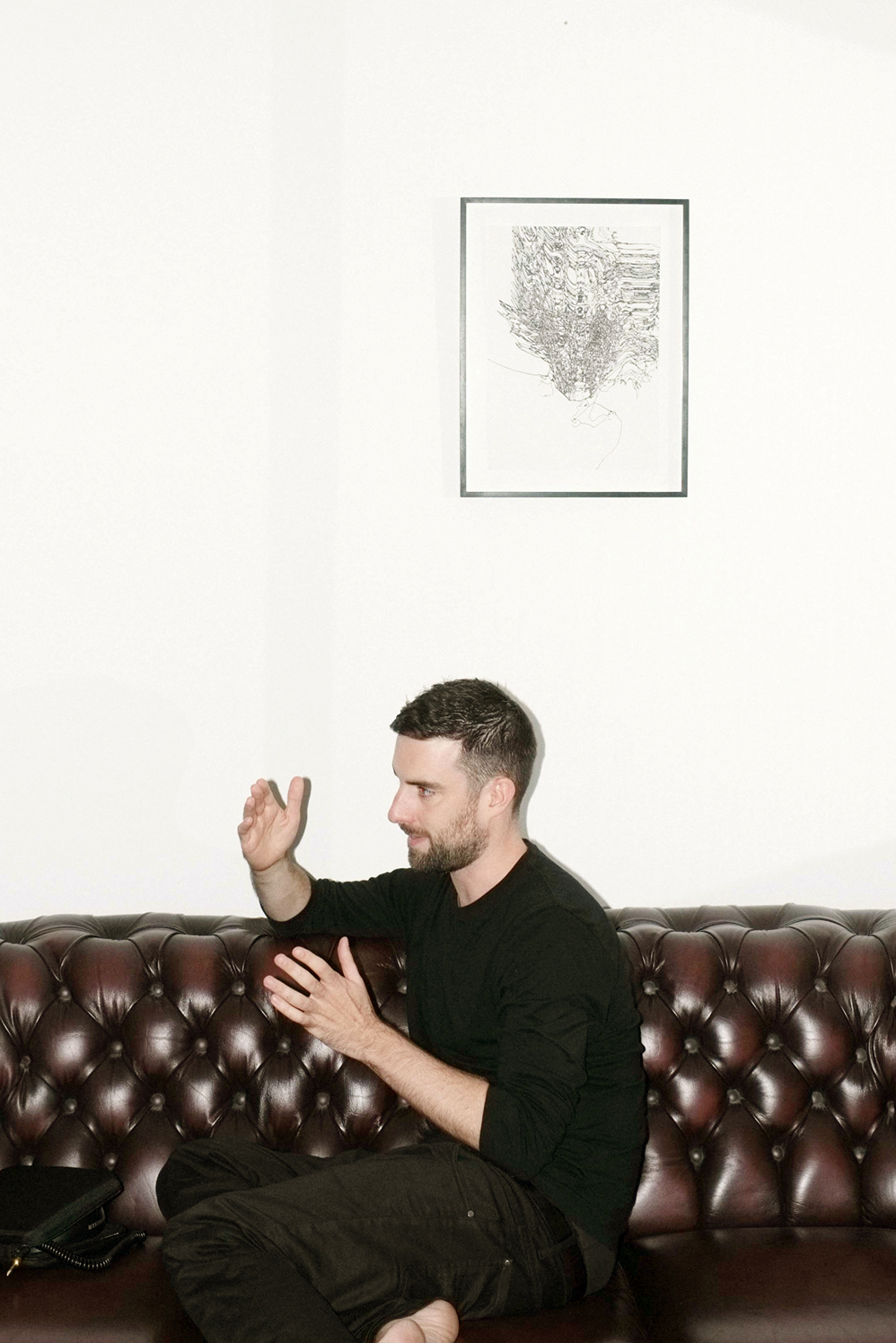
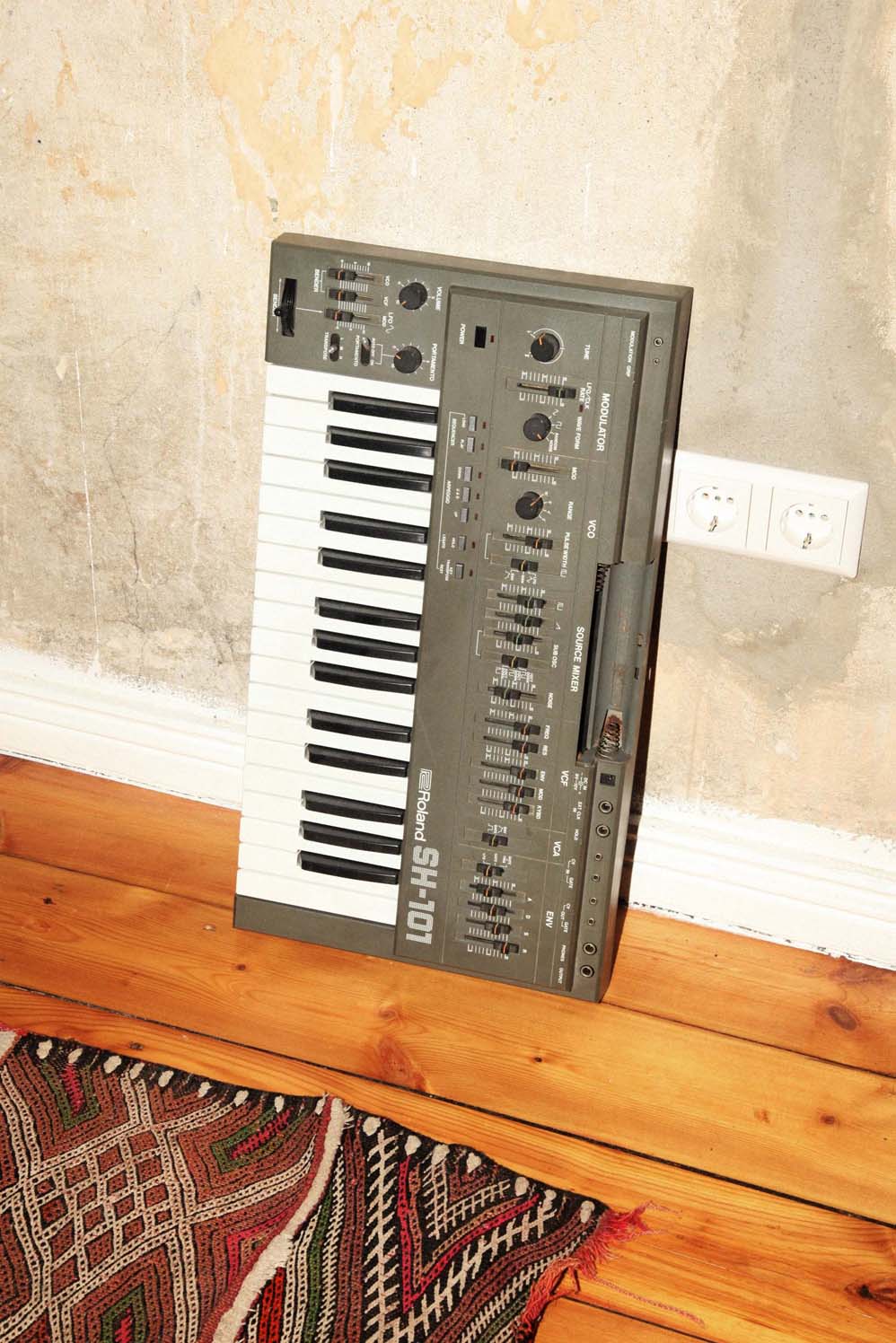
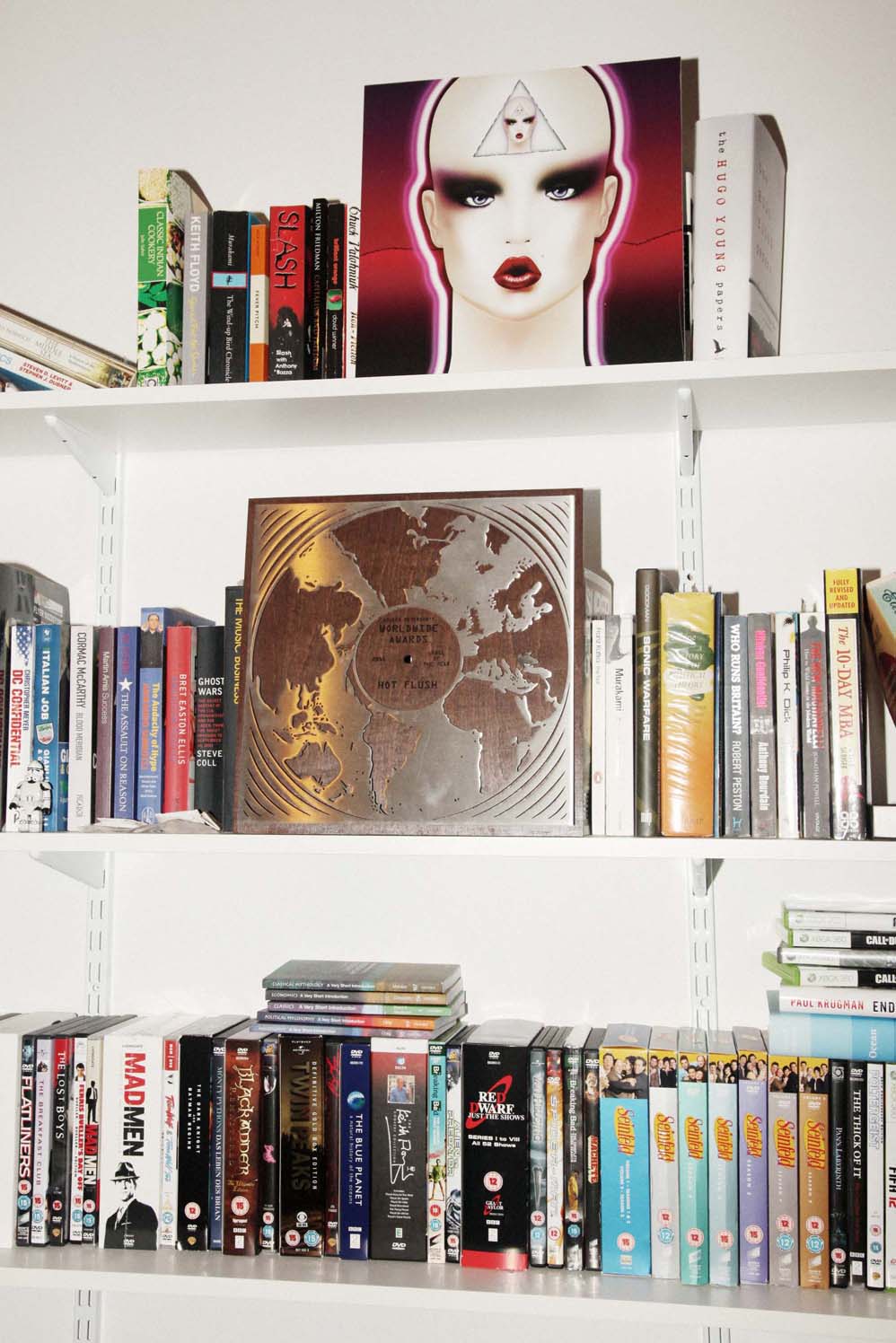
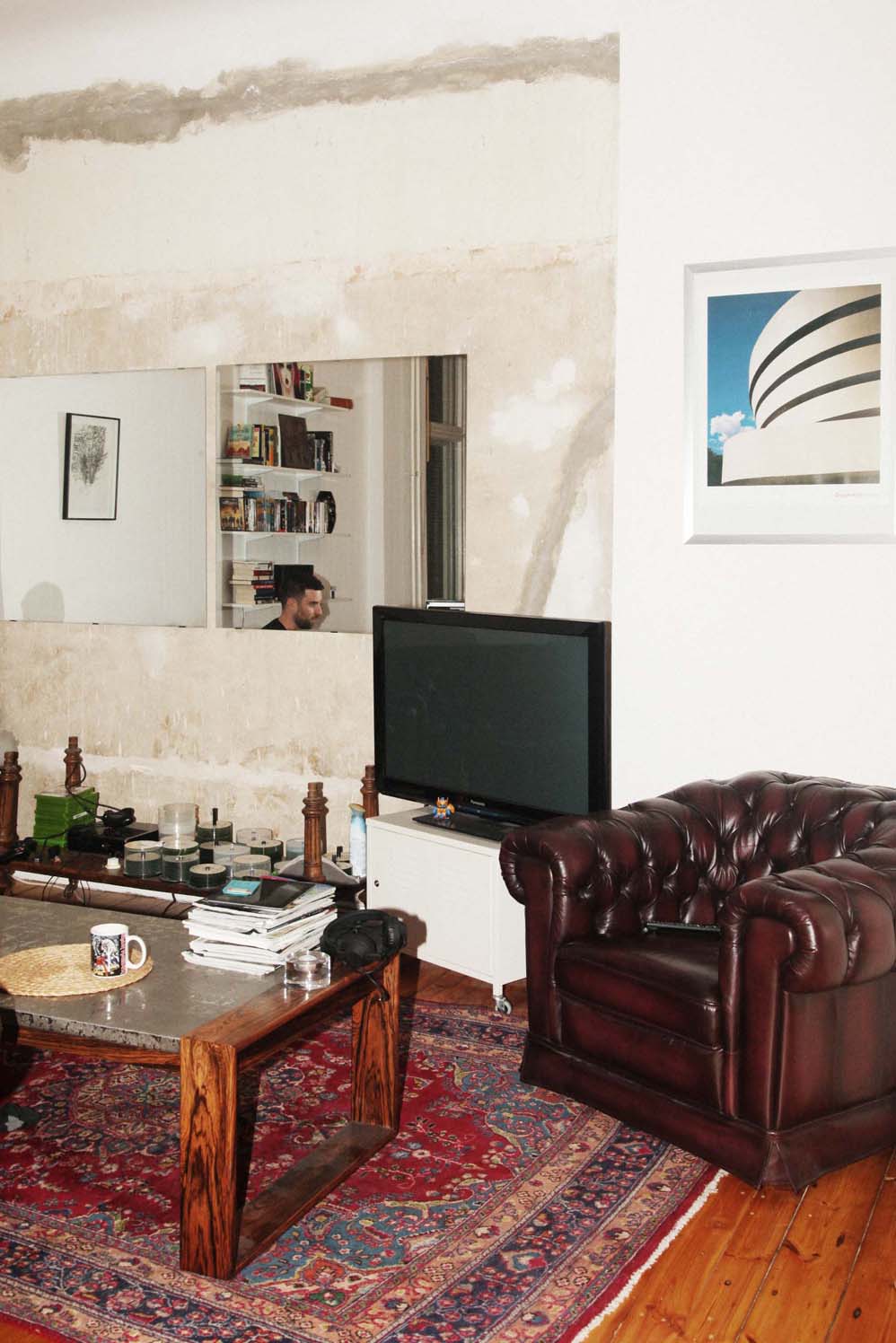
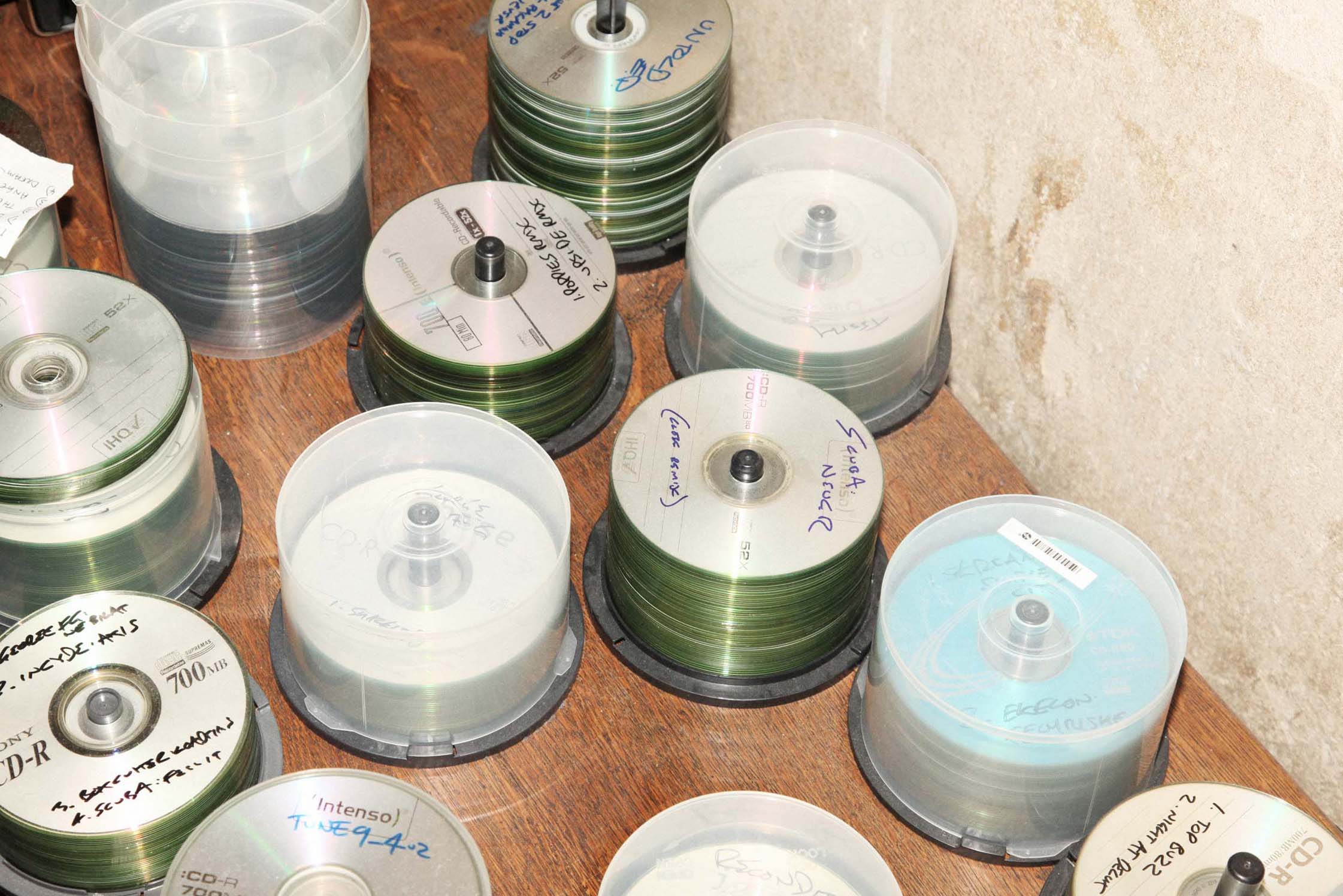
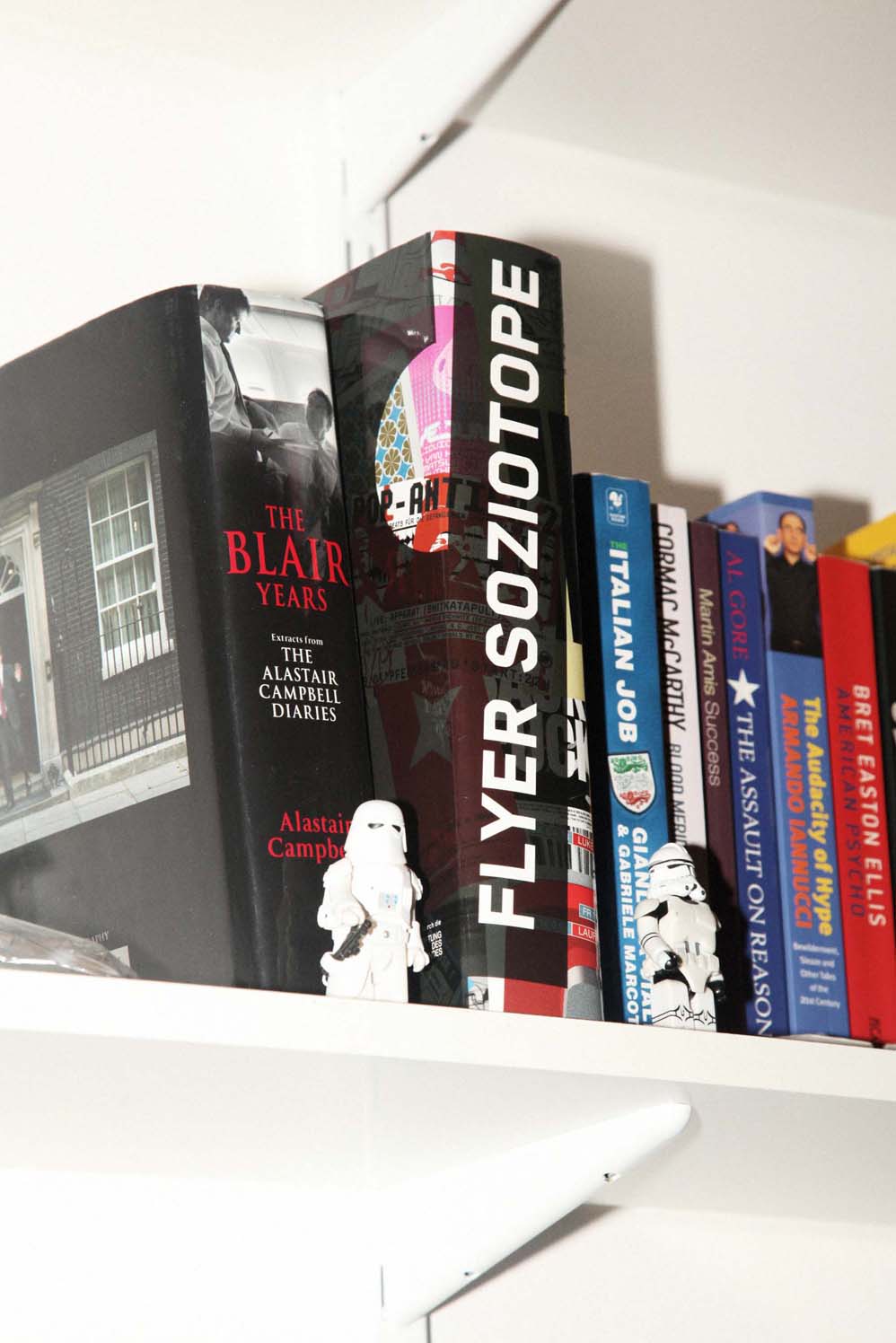
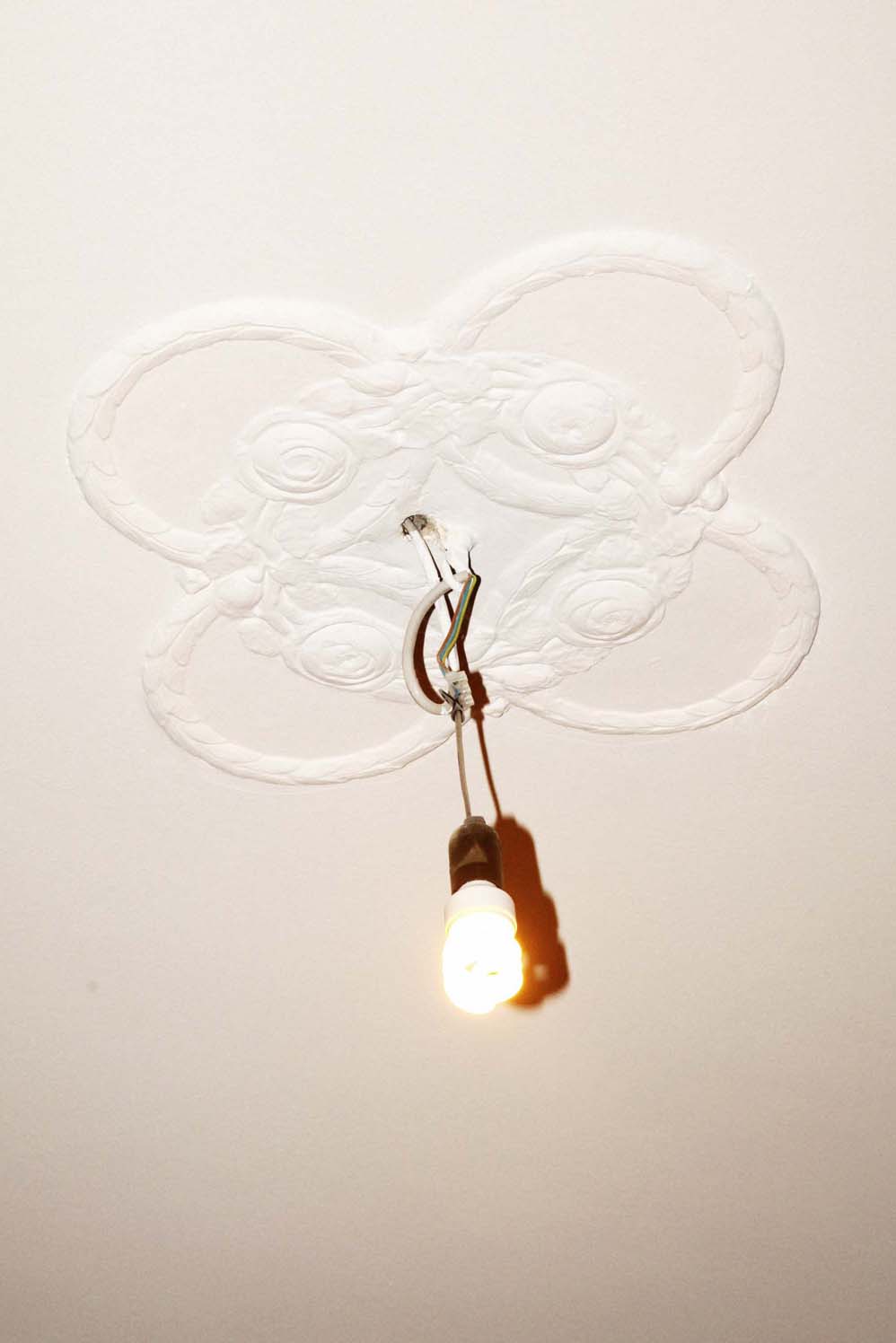
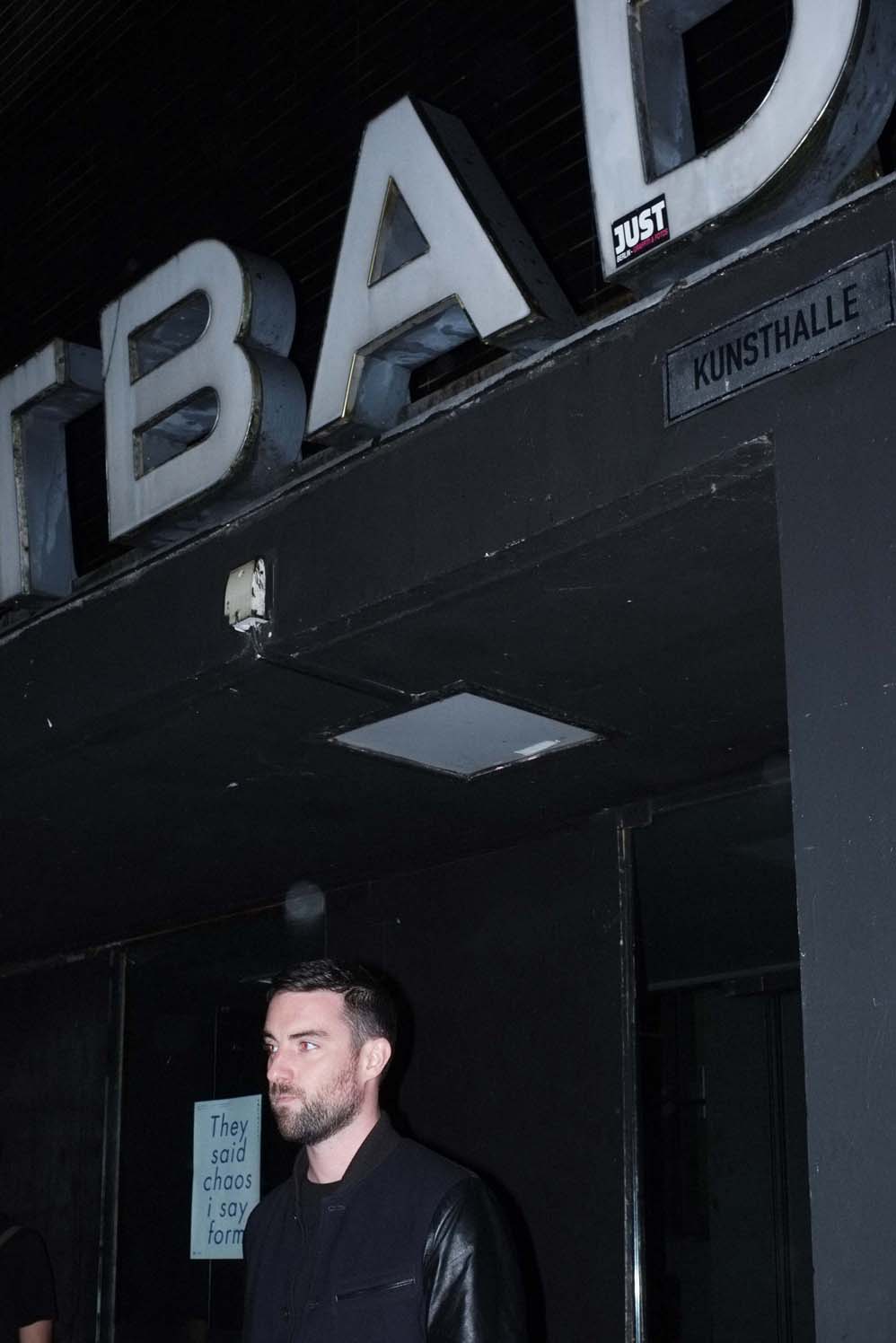
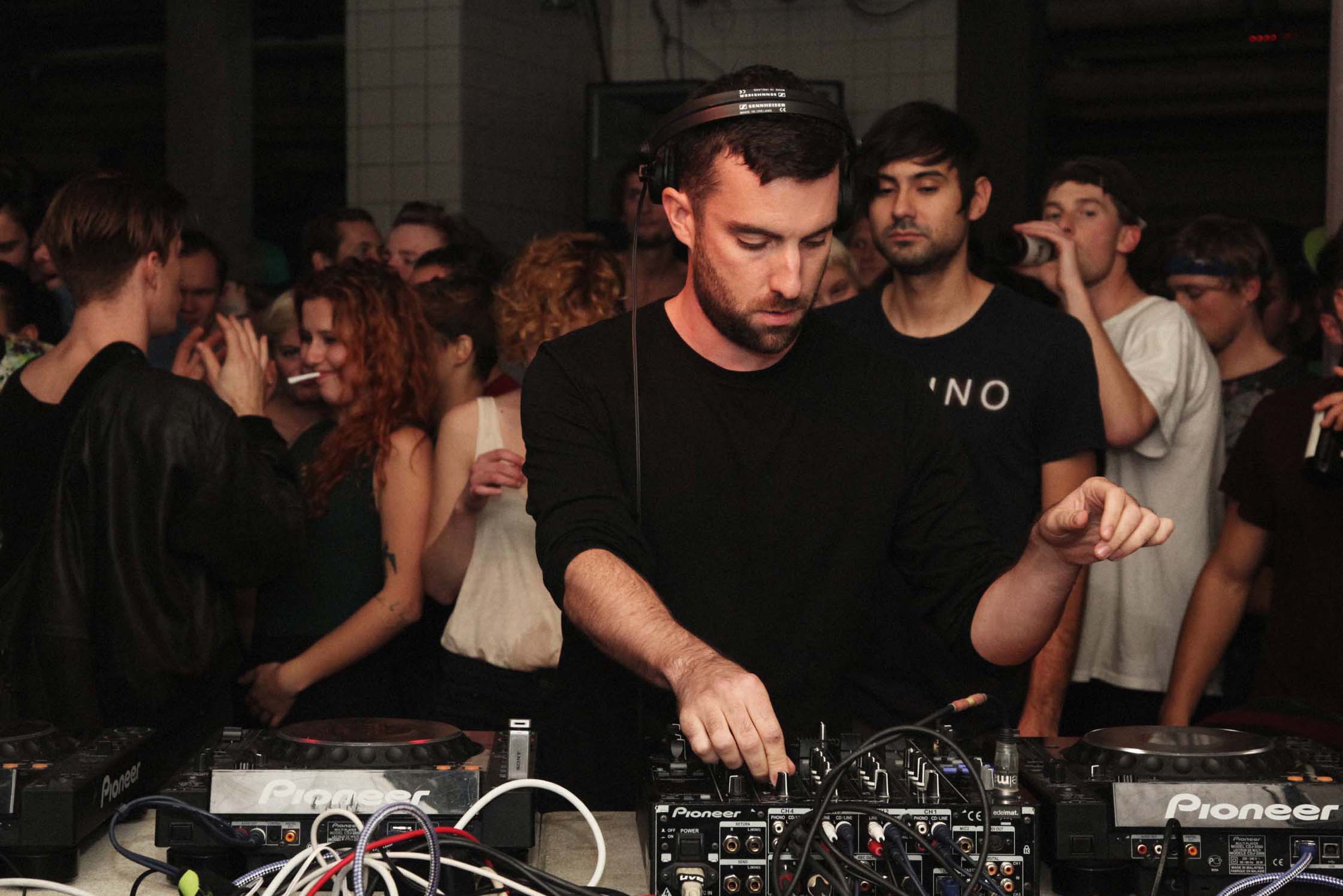
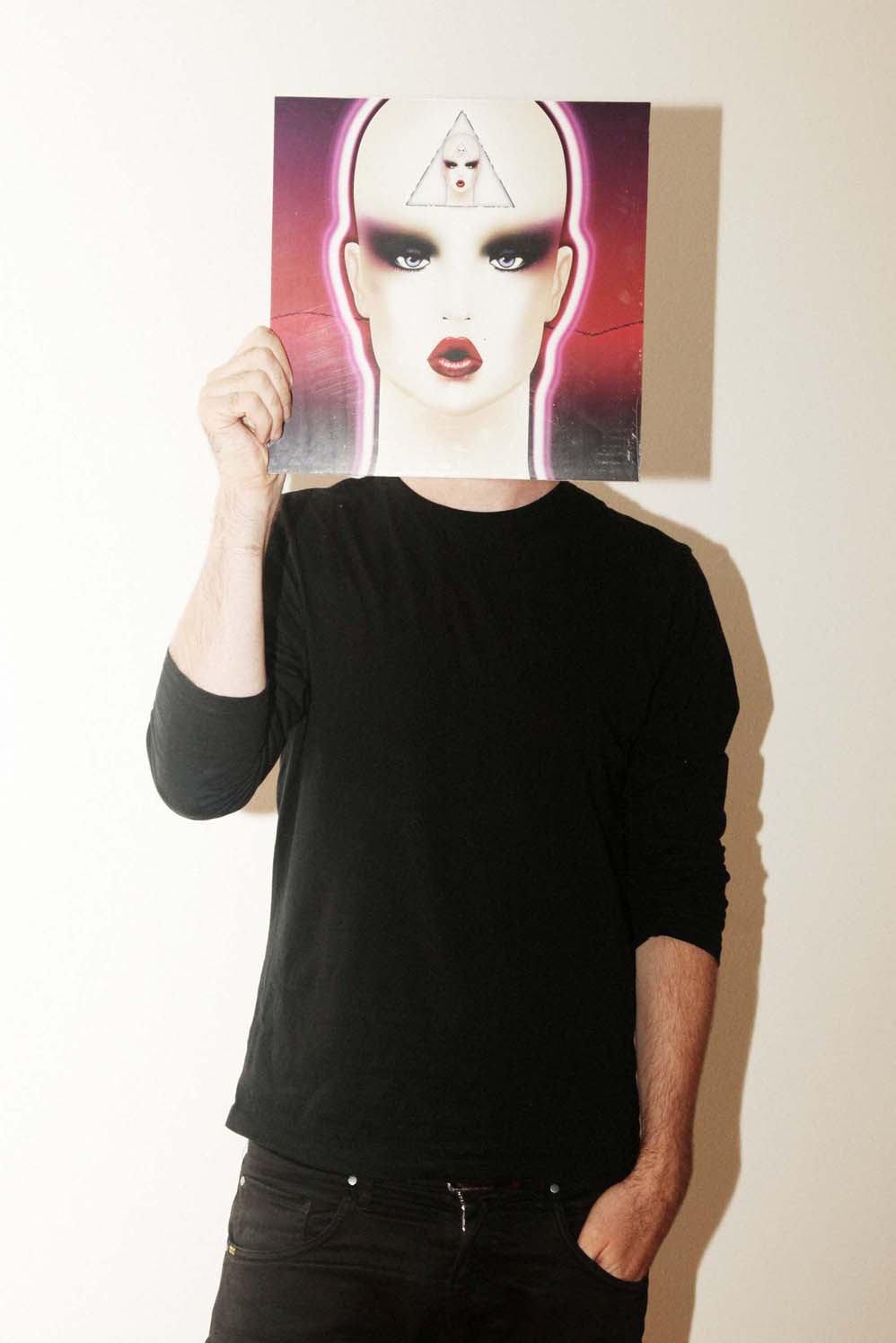
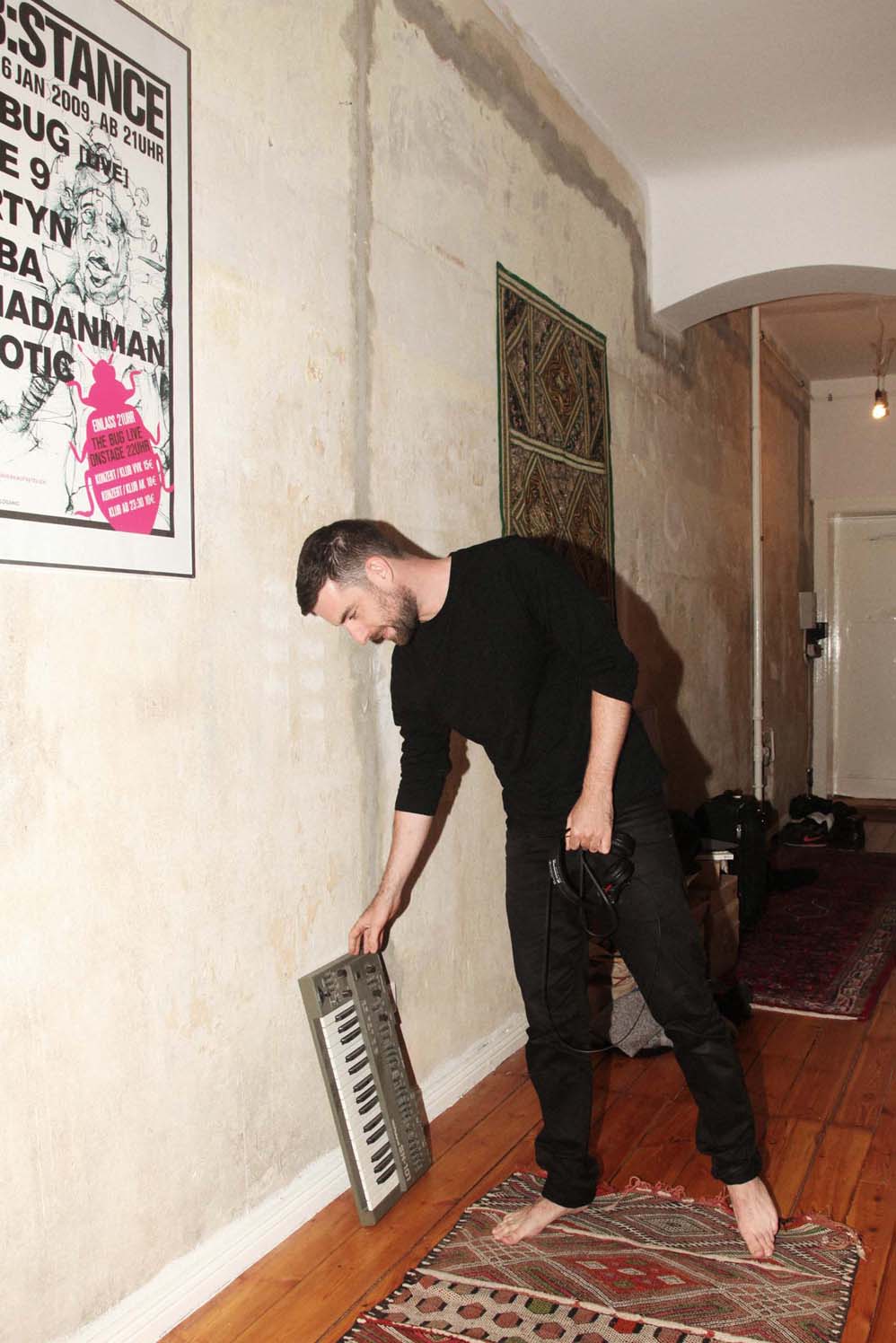
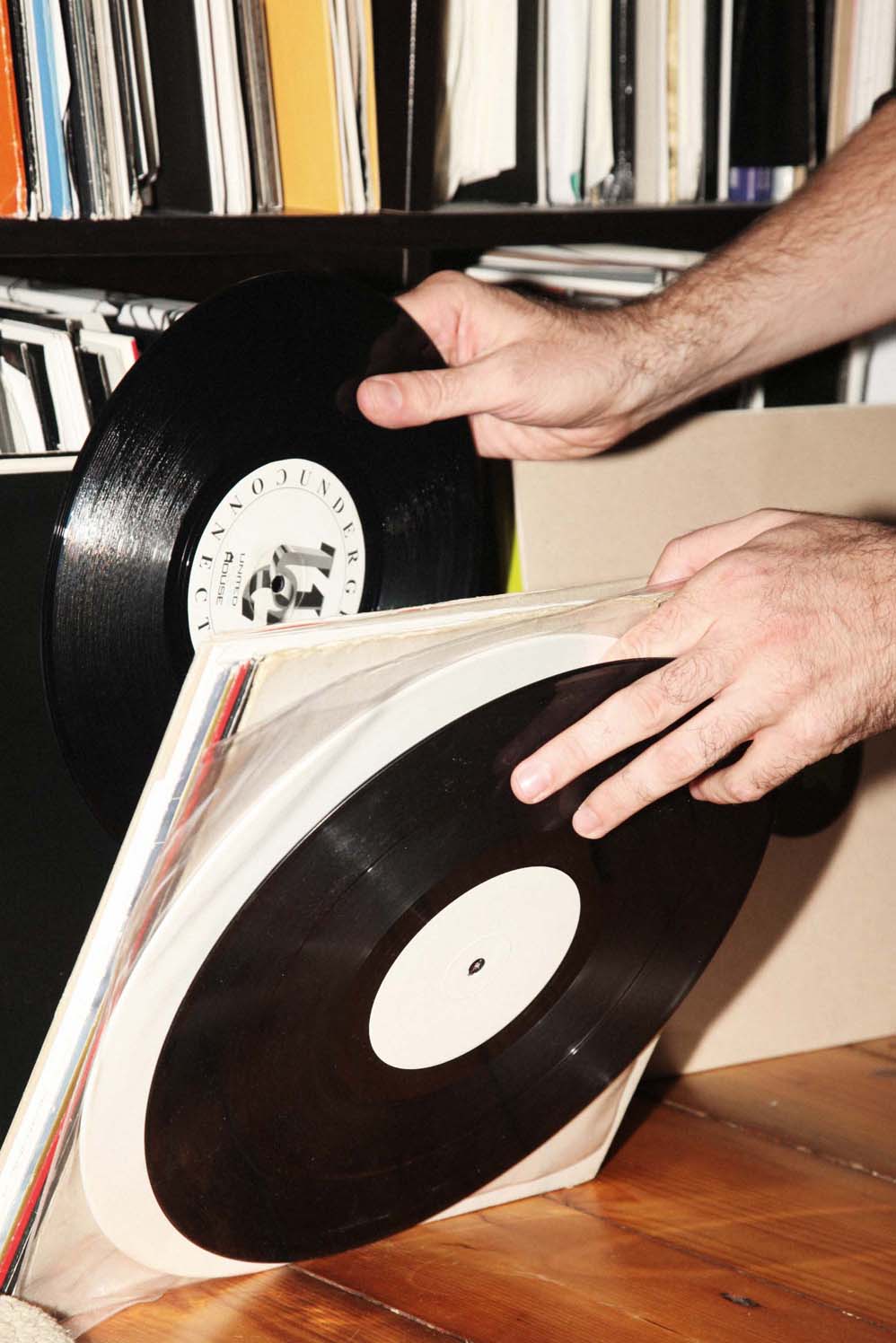
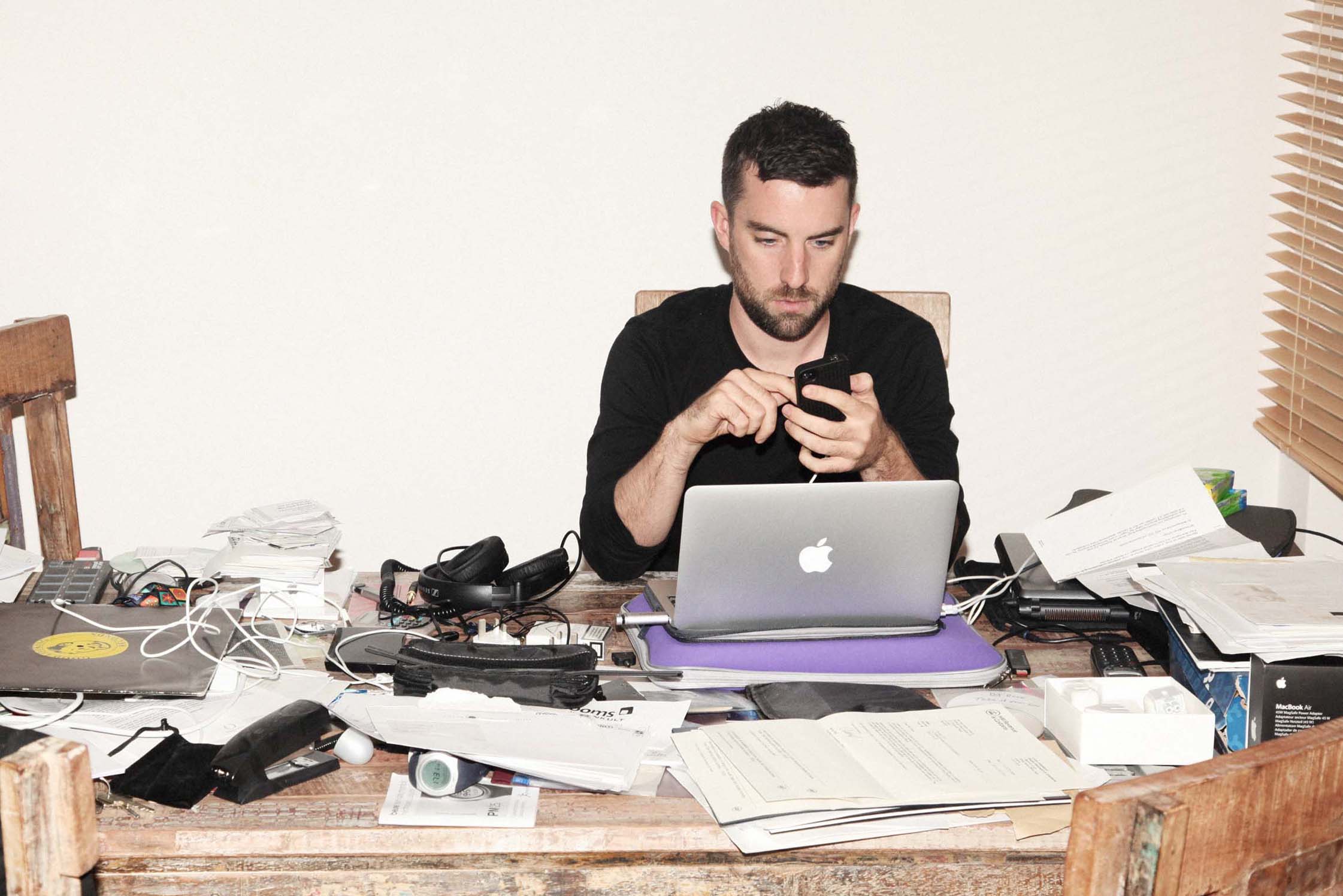
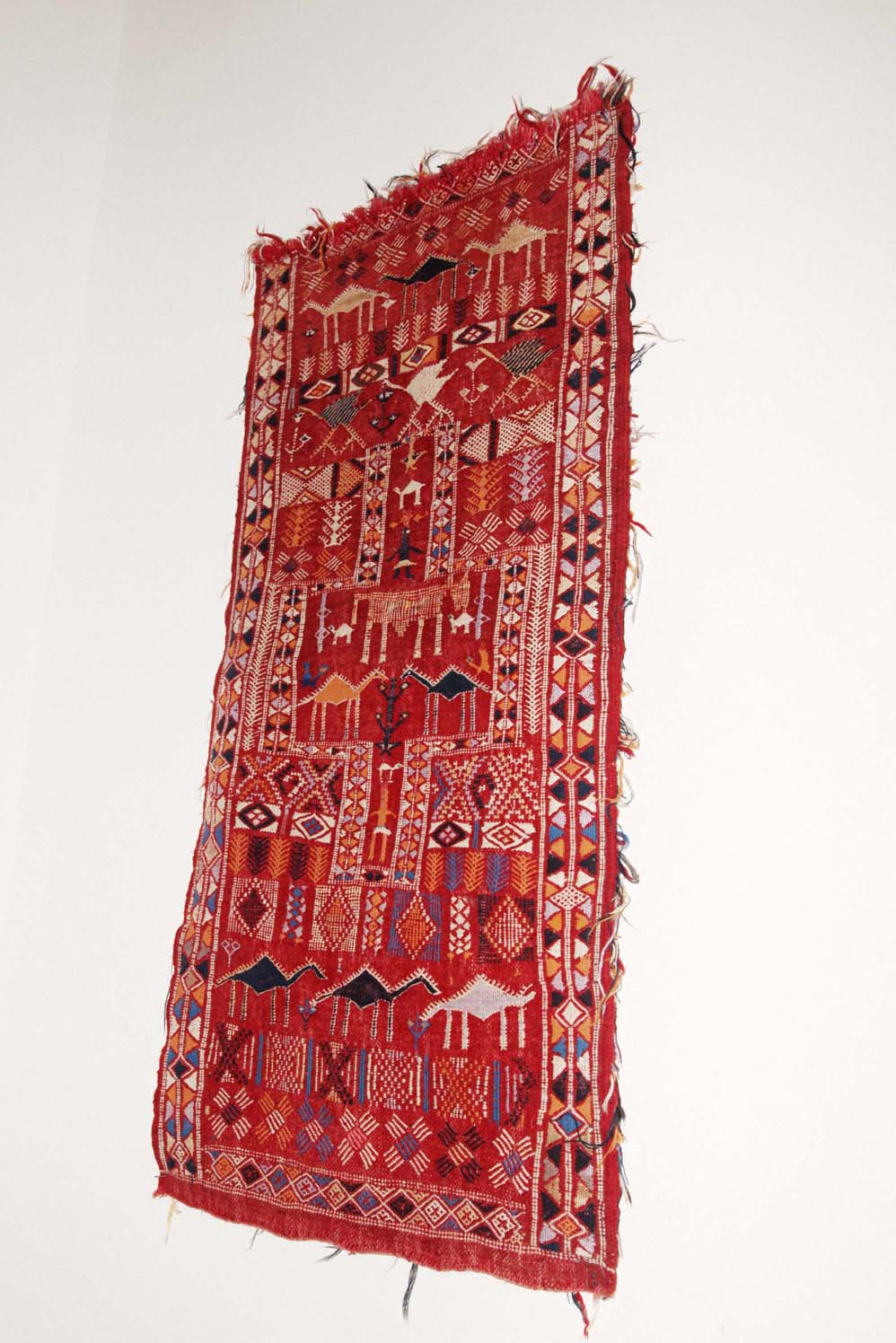
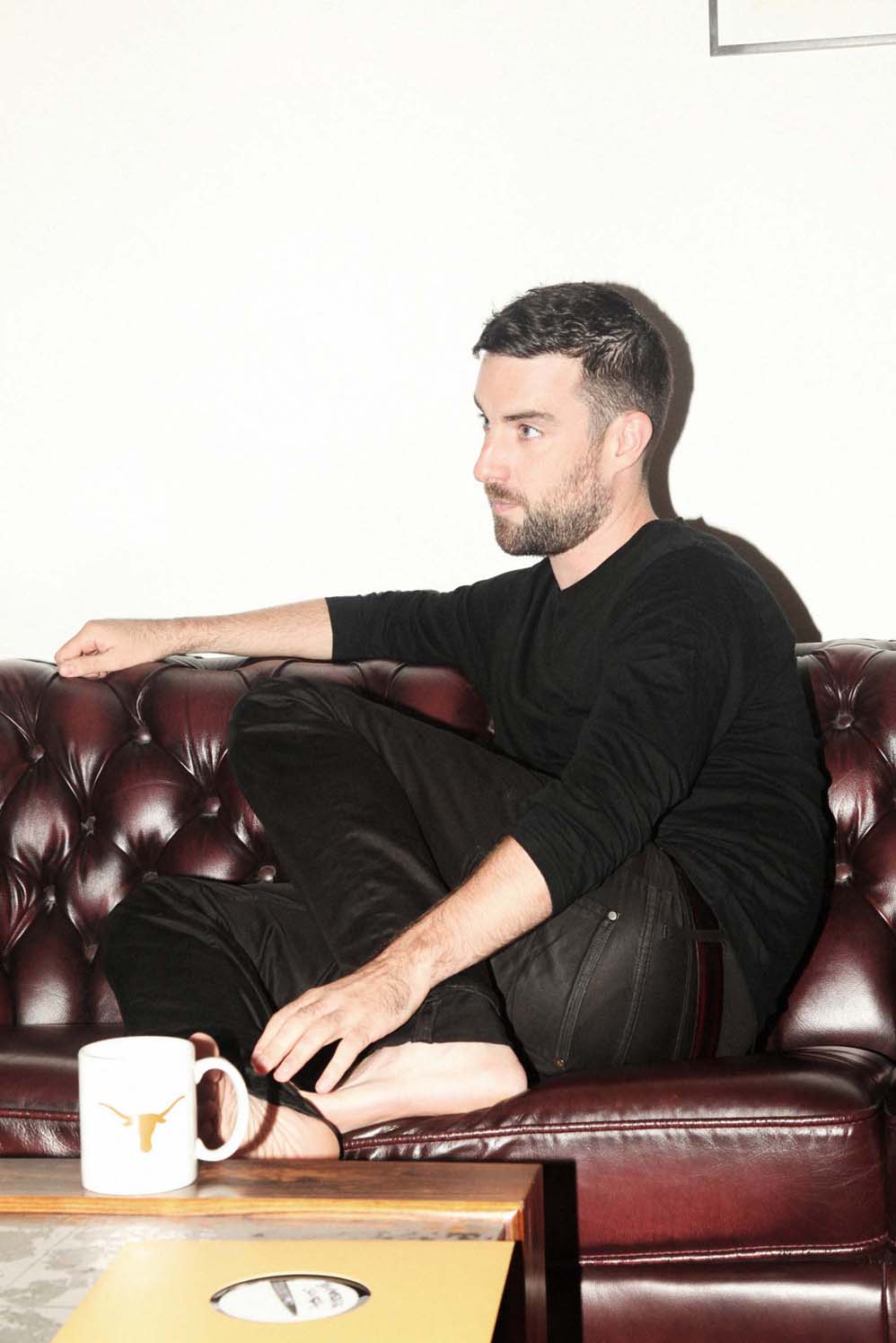
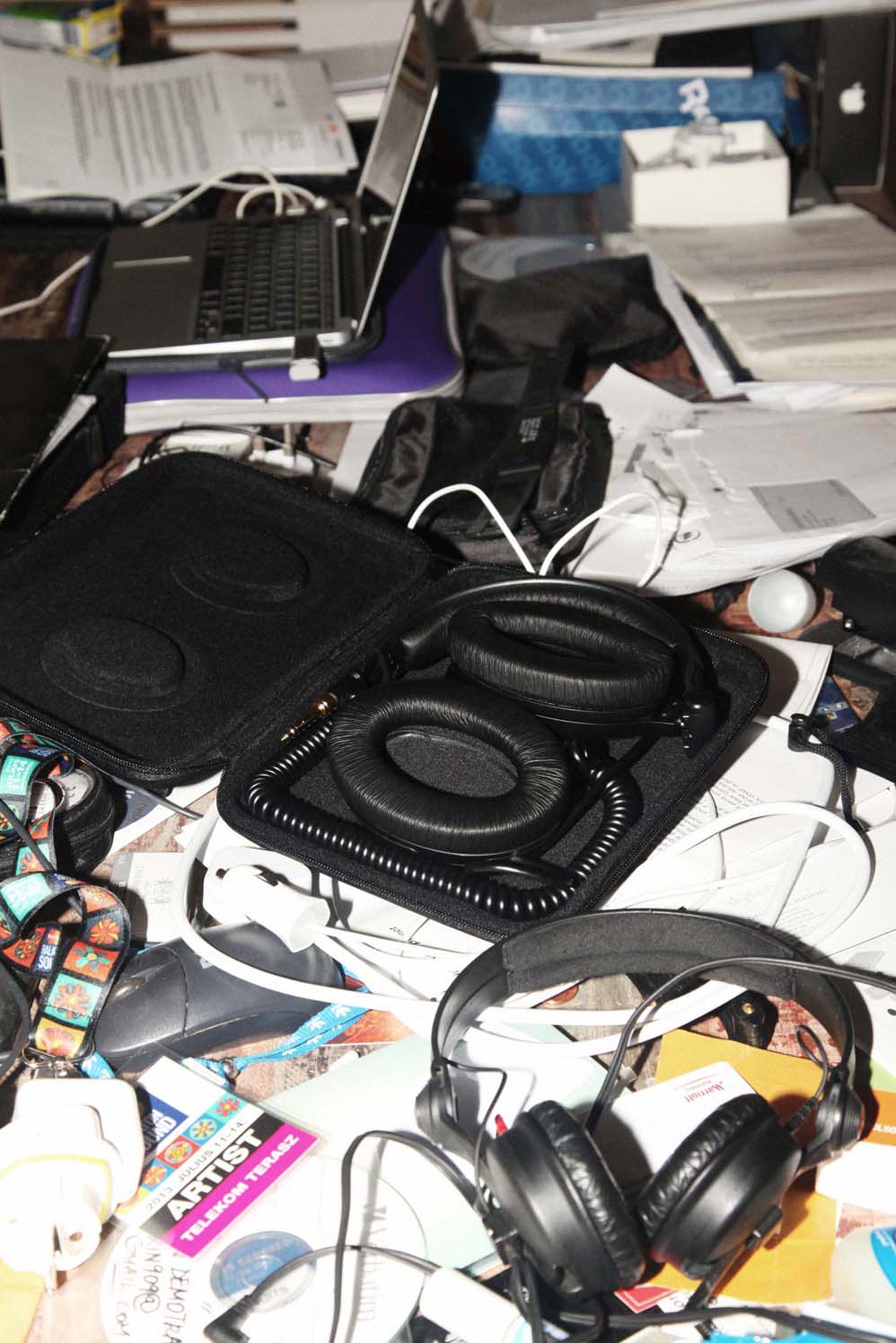
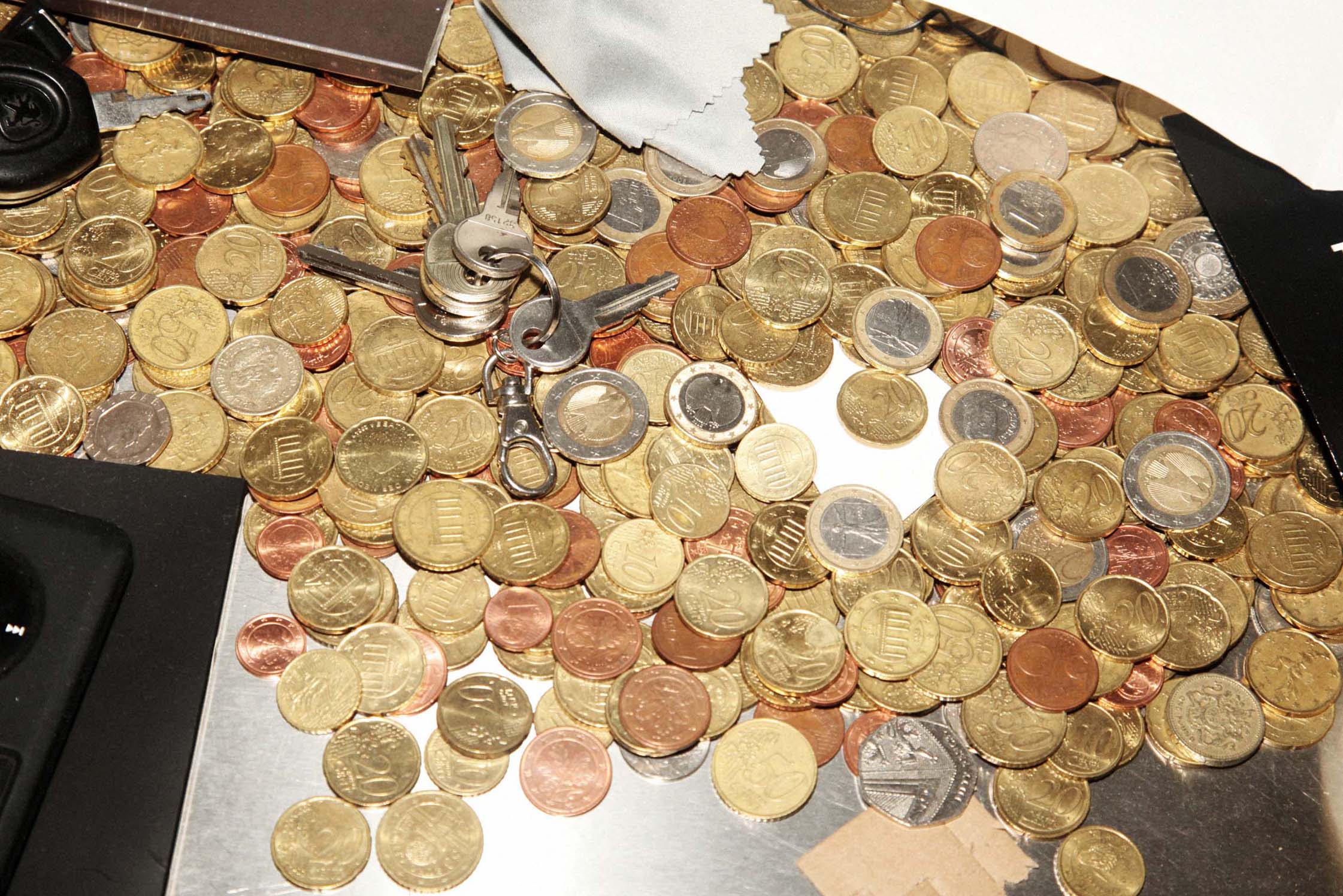
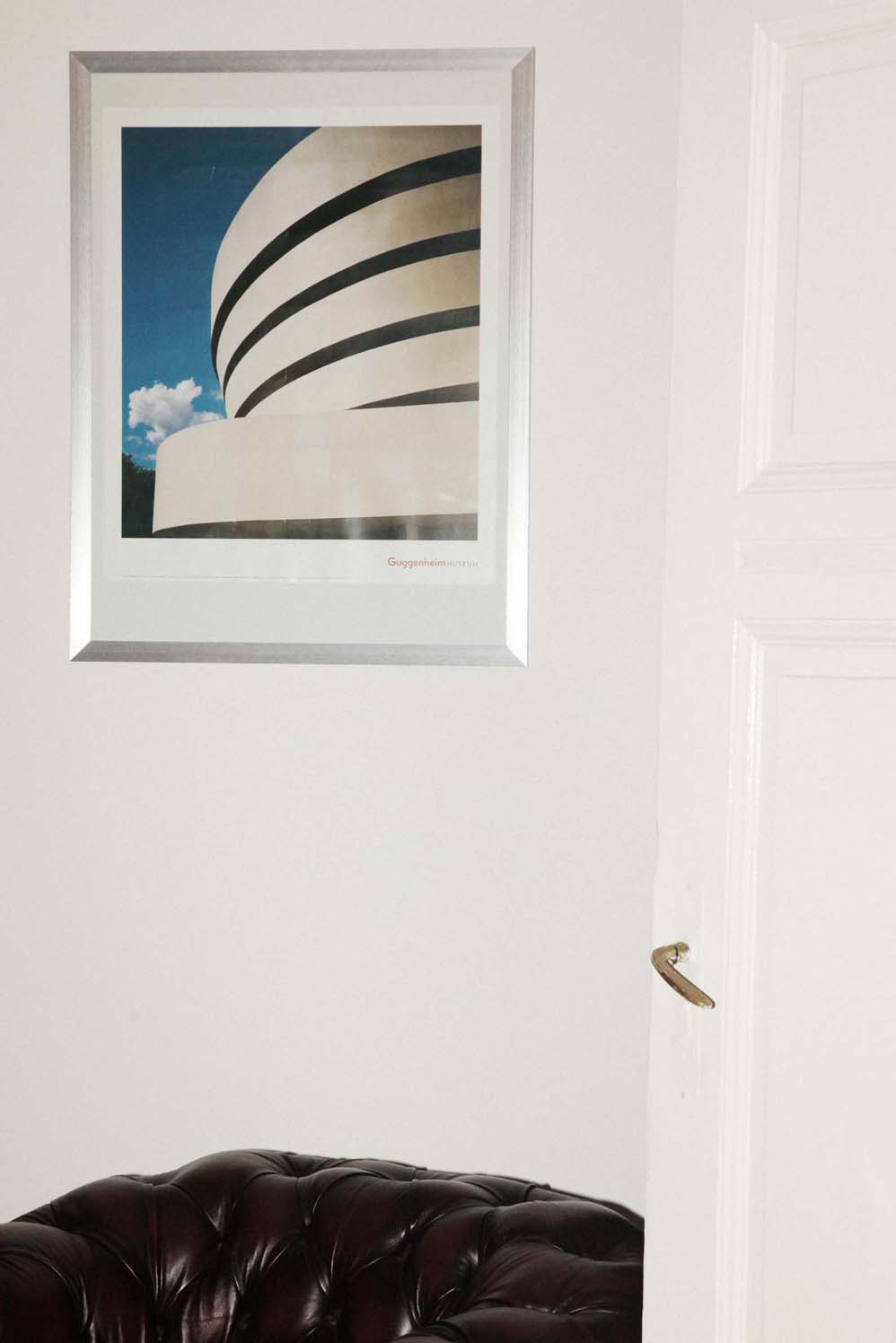
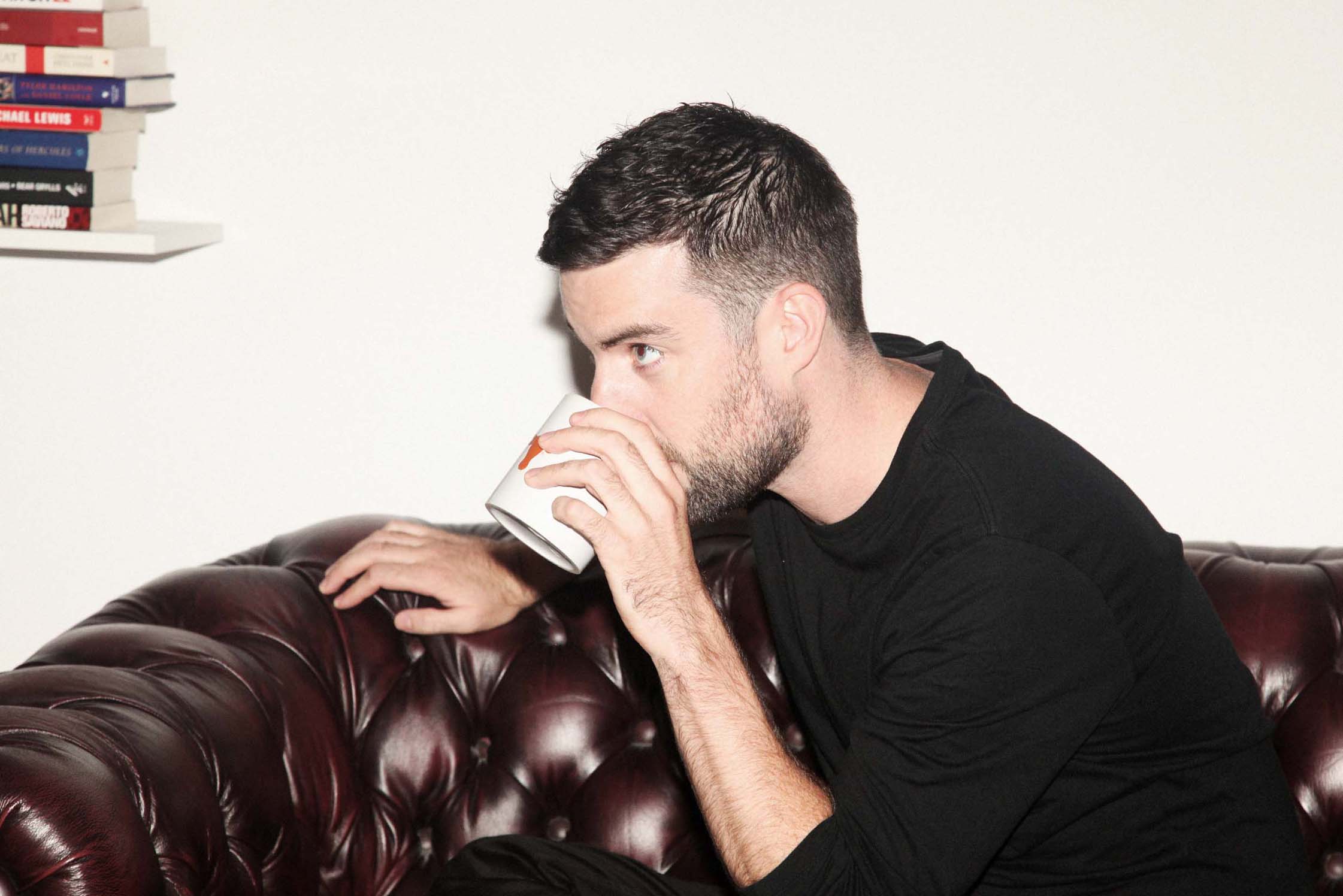
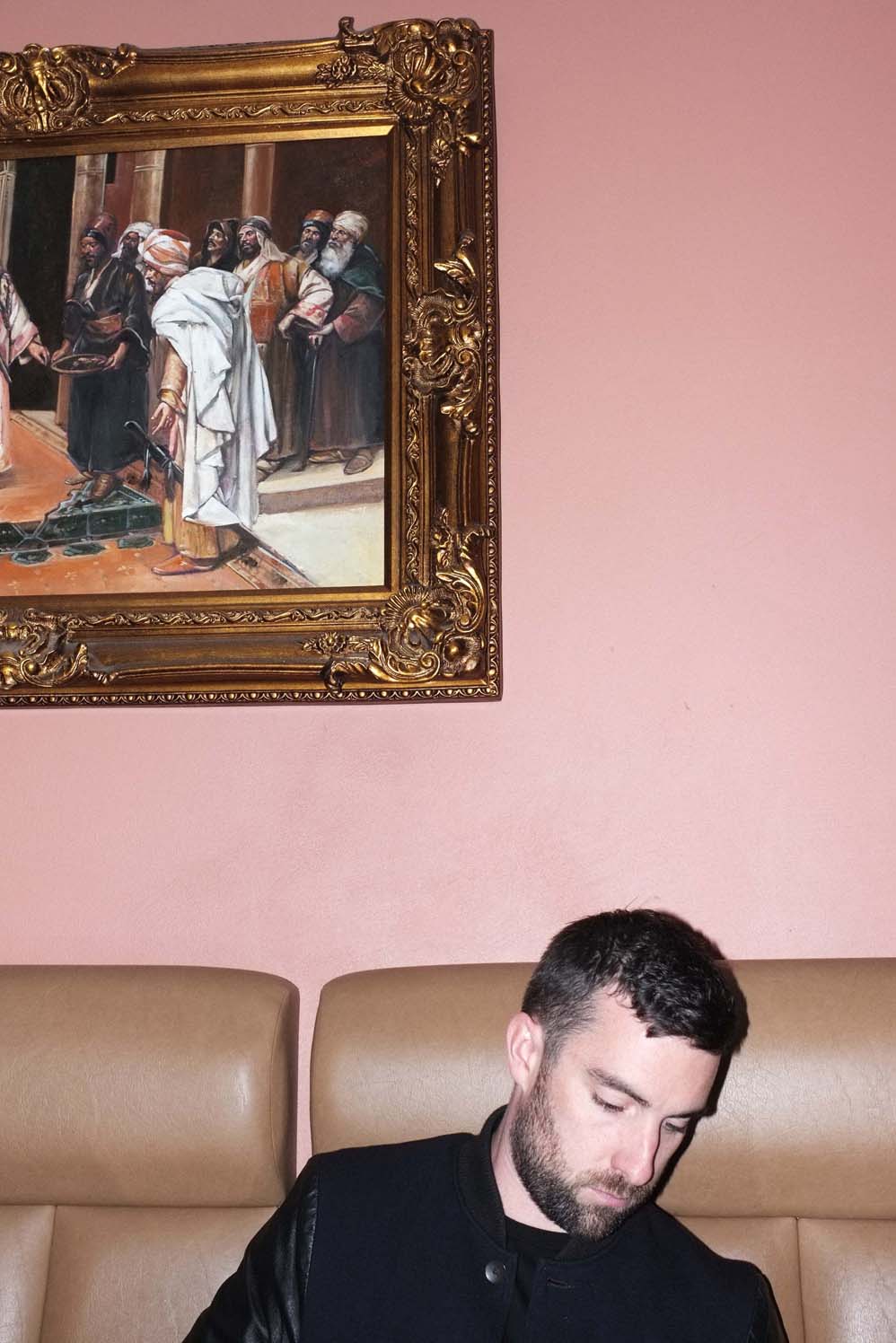
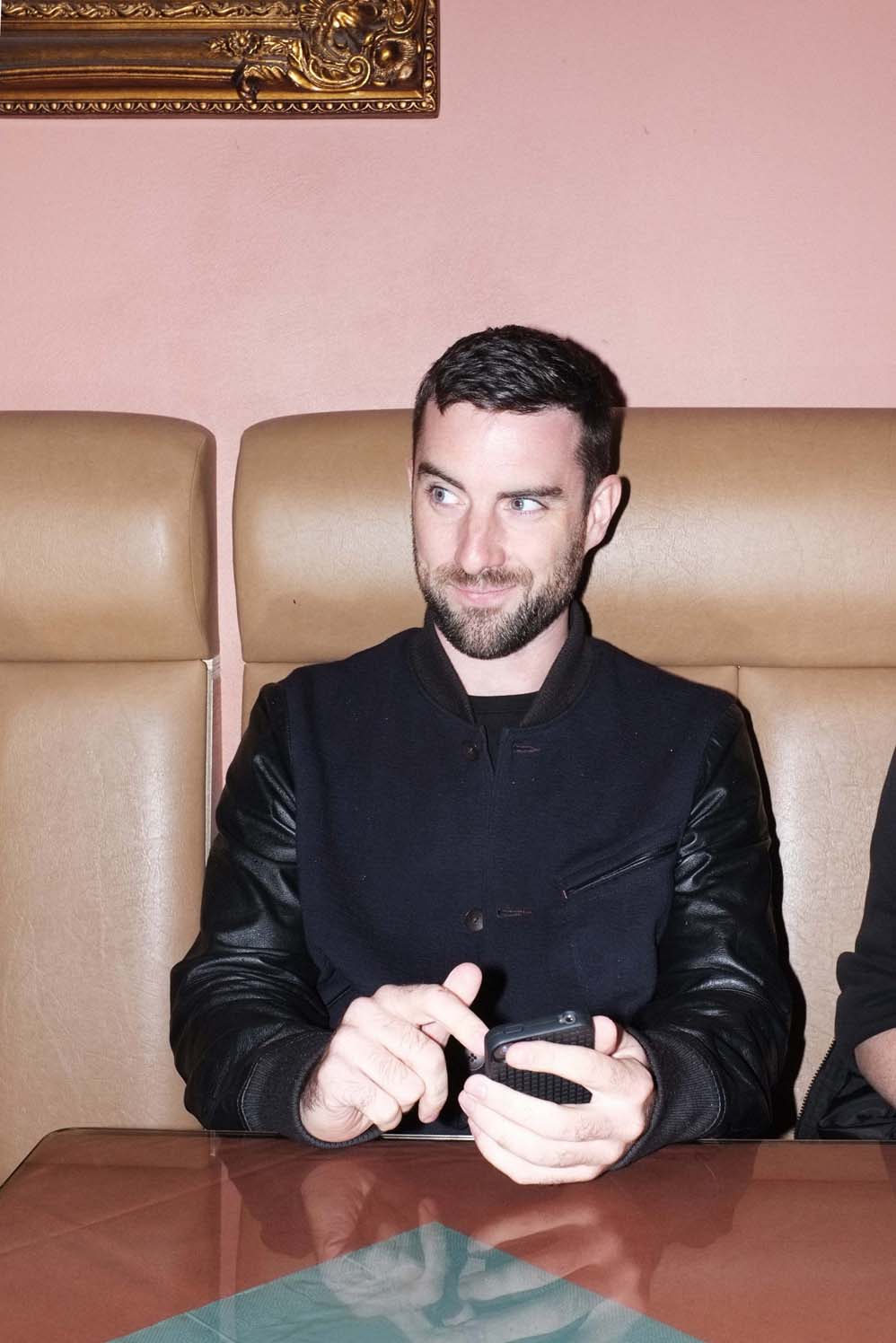
Nice to see you, I’m very happy we can do this interview. I may ask questions you’ve probably answered a million times before, if I do I apologize in advance.
Oh that’s fine. I might just not answer.
Ok then let me try my best. Why the move to Berlin?
Basically I was bored being in London. I just started to make a living from making music and the position I was in musically was one that I wasn’t particularly enjoying. Being part of the whole London dubstep scene. It was 2007, just as it started to get quite big in the UK.
Did you visit Berlin before your move?
Yeah, in 2006 I played a couple of times in Berlin and I was good friends with Rob Robotic. I wanted to get away from London and nowhere in the UK would have fitted. That’s the thing, when you come from London you don’t want to move anywhere else. Berlin seemed the most obvious choice. Good music and clubs, and cheap to live. I knew Jaime Vex’d just moved over and we were pretty good mates. It seemed like the right and obvious move. It was more the case of getting out of London and doing something else. I didn’t think I would stay longer than two years really.
You have that in common with quite a lot people that moved to Berlin! In 2008 you started the legendary SUB:STANCE nights at Berlin’s most well known nightclub Berghain alongside Surefire booking agent Paul Fowler. How did you come into contact with Paul Fowler?
Paul was Jamie’s agent, and I’d never had an agent before. Paul had moved to Berlin a couple of months before me. At that time I used to hang out with Jamie a lot. It just kind of happened really. And we started doing the SUB:STANCE thing I guess six or seven months later.
Obviously SUB:STANCE made, maybe unexpectedly, quite an impression on the Berlin dance music scene with near mythical evenings there. How much has Berlin influenced you during the last five years and contributed to your current style?
To an extent, yeah, but I wouldn’t want to overplay that. But yeah, in the first couple of years definitely. There were nights where I got the impression that actually something good is happening here. Definitely, certainly going out to Berghain did affect me. Definitely going to Panorama Bar for the first time was a very profound experience for me. I was thinking to myself: “I’ve got to play at this club, I’ve got to play at this club!”
Do you feel you fully settled in Berlin?
Perhaps, but I might leave quite soon, so … no. I don’t know. The last three years I’ve been away so much, I haven’t really felt like I am here. But I have a life here for sure. I wouldn’t say it’s home, but I’m used to living here. I have a lot affection for it, a lot of reservation as well, but generally more affection.
What changes have you seen in Berlin since you came here?
Obviously I came in the middle of a big change, but it is still changing so rapidly. We tried to figure out just yesterday how much exactly the rents have gone up within the last few years and it is just absolutely ridiculous. Berlin has been developing ever since and really quickly. It is quite unique when compared to other cities.
Could you show me around your flat a bit?
Sure. Would you like another cup of tea?
Oh yes please.
So I had the walls and the ceiling taken out to create this big room. Before this it was a very dark and narrow hallway. It was pretty mean. The floors were disgusting as well. You could only just see some of the ceiling ornaments in one of the rooms. Now it’s here in all it’s full beauty and reconditioned.
Where did you get this pretty carpet from that’s here on the wall?
I honestly don’t know. I had it in my flat in London, so it’s been with me for quite a while. But I got all of my carpets on the floor from a brilliant place in London. The three big ones plus the smaller one here.
You also renovated the bathroom?
Yeah, I had everything old taken out and created a wet room with a much favored rain shower.
I believe that every artist is influenced by everything surrounding him, environment and social structures.
Yep, absolutely.
What influences you the most?
I think it has a lot do with the context you are in. It is really important. The state you are in influences you in the way you perceive music. Going to Ibiza for the first time last summer was a very good example of that. When you go somewhere like that, to this kind of environment somewhere like Space, then you go home and sit down and try and create something. You approach it differently as you have consumed it in such a fundamentally different way. It’s the same with Panorama Bar. When you are in a space like that, in an atmosphere like that, when it’s different to everything that you have experienced before, you start thinking about the music differently. How it interacts with the atmosphere and how people perceive it in the context of being part of that atmosphere. You also have to be careful of taking too much influence from just one thing.
You have gone through a very interesting creative transformation, yet not everyone seems to like the direction you are going in. Obviously you cannot please everybody. But how do you deal with criticism from your fans? Would you say it influences you at all?
Well I guess, generally speaking, the changes in my music aren’t as fundamental as people are trying to make out. So when I get a really violent reaction towards certain tracks that I make, my attitude is “well, fuck you, this what I’m doing,” and I become quite confrontational about it. That’s usually my first instinct anyway. In the first period after moving away from dubstep I took that attitude. But now I’m a bit more diplomatic about it. People are quite often set in their own ways and don’t really want a change and if you’re not really doing what they think you should do, then I disengage.
This might be the smallest record collection I have ever seen in a DJ’s home.
All my records are still in London, in my mum’s house – mainly records that I bought years and years ago. I’m not a big record collector and I haven’t played vinyl properly for almost ten years now. Only CD’s until this usb-stick-thing happened. Which is the best thing that happened in the history of the world as far as I’m concerned.
How do you market your music? Do you use digital channels?
Yeah it is pretty crucial these days. Facebook is really important and Twitter of course. And actually increasingly Instagram is important. I’ve heard that promoters will book you on the basis of how well your instagram account is doing!
You are on the forefront of new media and with your Twitter account you are a bit of an Enfant Terrible, engaging your followers in political subjects and posting semi naked pics of yourself! Do you think there is a place for politics in dance music?
Hmm. I would like to say yes. One of the most regrettable things is that artists are scared and don’t tend to engage in these discussions anymore like they used to 20 years ago. It’s a shame. It is difficult. When you try and get involved in these things, you get the most unbelievable level of abuse. Especially when you don’t take a common viewpoint to certain topics. I also had some very interesting discussions on Twitter with people. I learned some stuff. It’s an amazing medium that’s so much fun, but you have to be careful sometimes. You are so much closer to people than before.
It might be better for the fans to feel they are closer to the artist, but I don’t think it is necessarily better for the artist. It becomes harder to create a myth about yourself. Probably the reason why I am on Twitter like I am, is to create this alter ego. It is sort of a cartoon version of who I am.
When you play you also interact with your crowd. Sometimes more, sometimes less depending on how the club is set up. How much does the audience influence your set?
Obviously when you play two times a week for months on end, you will have a few tracks that you know you will play. But it’s very important to adapt to the context you are in and playing at Ushuaia in Ibiza on Saturday afternoon it’s going to be different to when you play at Culture Box in Copenhagen on a Sunday morning. You have to be quite adaptable.
You’ve played quite a few B2B sessions this year; with your Hotflush label partner George Fitzgerald, Heidi and John Osborn. Do you prefer playing alone or Back to Back?
It’s very enjoyable to play back to back sets. It’s a lot of fun! It’s a laugh. It seems to come to me quite easily. When I first started playing I was in a sort of DJ team. So I played back to back for a few years, mainly with the guy I started Hotflush with. Then I didn’t do it for years and years. The first back to back set was with John Osborn. It is really great fun playing with him. And of course with George and Heidi as well. Great fun. You have a bit more freedom and play around a bit more.
Any future plans?
I have loads and loads of new material that isn’t quite finished, so that needs to be finished. I got to a stage where I have loads of really quite poppy stuff and full vocals. Now I’m trying to reconcile that with being more serious and less like ‘adrenaline’. Darker stuff. Yeah we will see what will happen.
Paul it has been great to speak with you about your transition to life in Berlin and your music career. To find out more about Paul’s performances and releases visit his website here.
This portrait is part of a collaboration with Sennheiser’s Blue Stage Magazine: Find the extended version of the interview with more pictures, musical background, some Boiler Room Berlin coverage and specific product details on Scuba’s headphones here.
Photography: Anna Rose
Interview & Text: Jana Osborn
